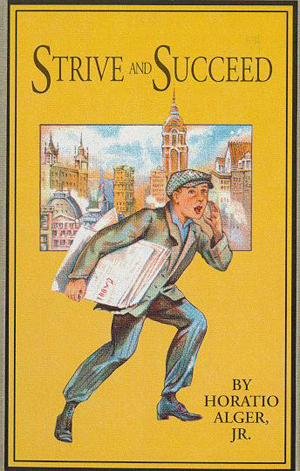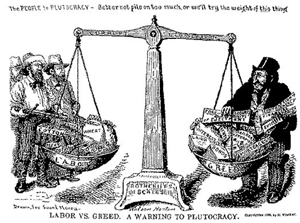Eyewitness to History
When Elia Peattie stepped off the train in Omaha, Nebraska, in 1888, she brought with her more than her husband, their two children, Elia's sister, Robert's mother, their trunks, and all of their worldly possessions; she also carried along a bundle of cultural baggage. Like most newcomers to the West, Peattie accepted and even promoted the prevailing myths and attitudes of the times.
Following Frederick Jackson Turner's frontier theory, Peattie, as well as most newcomers, believed that the West was the source of American democracy and that it set people free from the past, offering them a new life with a new identity in a new environment. For the first time in their marriage, both of the Peatties would be holding prestigious jobs in the blossoming new western city of Omaha–Robert as Managing Editor of what would soon be the merged Omaha World-Herald and Elia as editorial writer and columnist with guaranteed bylines. Robert and Elia became the New American Adam and Eve in the Garden of the West.

Perhaps the most persistent offshoot of this belief in new beginnings was that the West provided limitless possibilities for social mobility and economic opportunity through the initiative of the individual. The Horatio Alger myth that "pluck, luck, and moral rectitude would advance one's station in life" promoted the idea of "rags to riches" and the "self-made man" and became one of the guiding forces in the westward migration. More important, the myth rejected unrestrained industrialization, capitalism, and even materialism, and warned about excess. [1]
Robert and Elia personified the Algerian hero. Arriving in Omaha nearly penniless and virtually unknown, through their hard work they quickly became community leaders whose voices made a difference in social, cultural, and political arenas in the city. They purchased a spacious Victorian home on the southern outskirts of the city, and they reveled in their new economic security. However, they were careful to distance themselves from the elite upper class, taking pride in coming from humble beginnings, in being self-made, and in their status as middle class.
Peattie's sojourn in Omaha occurred at a pivotal time in American history. The struggles and sacrifices to end slavery in the South and unify and heal the nation changed how Americans thought about themselves. The rise of the Gilded Age, fueled by industrialism and territorial expansion, triggered opportunism and exploitation, not only of resources but also of people. Quickly a new class of staggeringly wealthy industrialists and businessmen arose–the robber barons–concentrating wealth and power in the hands of a corrupt few.
Meanwhile, Nebraska, especially Omaha, witnessed tremendous growth in wealth and power. According to government statistics, Nebraska's population stood at 452,402 at the beginning of the 1880s, and by the end of the decade it had increased to 1,058,910, a gain of 136%. [2] Omaha itself boasted of 30,518 people in 1880, and by 1885 the population had reached nearly 60,000. [3] The Union Pacific Railroad Headquarters, huge stockyards and packing plants, and large manufacturing companies, like the Omaha and Grant Smelting and Refining Works, attracted many people to the booming city. Money was there to be made by everyone in Omaha, or so it appeared.

However, the close of the frontier in 1890 (according to Turner) began the transition into the Progressive Era, and new scientific thought, new attitudes toward women's place in society, and increased educational opportunities spurred interest in reform: political, social, and economic. The Progressives, a diverse group, surfaced from the American middle class that "shared a highly moralistic and optimistic outlook and a determination that they, the stable mortar of American society, would not stand passively by while the newly emerging capitalists of industry and commerce ground them down into a propertyless 'proletariat.'" [4] This post frontier reformation shifted more political power into the hands of the people on every level of government in the hopes of regulating giant corporations and corrupt government officials.
In Peattie's writings about the headline news of the day, she echoed the concerns of the Progressive population. Like them, she wanted to combine the best of the old ways with the new scientific thought "to produce a pragmatic, productive, and less exploitive society." [5]
Eyewitness to History
References
Chudacoff, Howard P. Mobile Americans: Residential and Social Mobility in Omaha, 1880-1920. New York: Oxford University Press, 1972.
Etulain, Richard W. Re-Imagining the Modern American West: A Century of History and Art. Tucson: University of Arizona Press, 1996.
Larsen, Lawrence H. and Barbara J. Cottrell. The Gate City: A History of Omaha. Enlarged Edition. Lincoln: University of Nebraska Press, 1997.
Limprecht, Hollis J.A. A Century of Service, 1885-1985: The World-Herald Story. Omaha: Omaha World-Herald Company, 1985.
Malone, Michael P. and Richard W. Etulain. The American West: A Twentieth Century History. Lincoln, NE: University of Nebraska Press, 1989.
Nackenoff, Carol. "The Horatio Alger Myth." Myth America: A Historical Anthology. Vol.II. Eds. Patrick Gerster and Nicholas Cords. St. James, NY: Brandywine Press, 1997. 72-76. Reprinted from The Fictional Republic: Horatio Alger and American Political Discourse by Carol Nackenoff (New York: Oxford University Press, 1994).
Illustrations
"Strive and Succeed." Horatio Alger Resources. http://www.washburn.edu/sobu/broach/algerres.html. With Permission.
"The People to Plutocracy." Missouri State History Dept. http://history.missouristate.edu/wrmiller/Populism/2scartoon/scartoon02.htm. With Permission.
Notes
XML: ep.owh.eye.0001.xml
